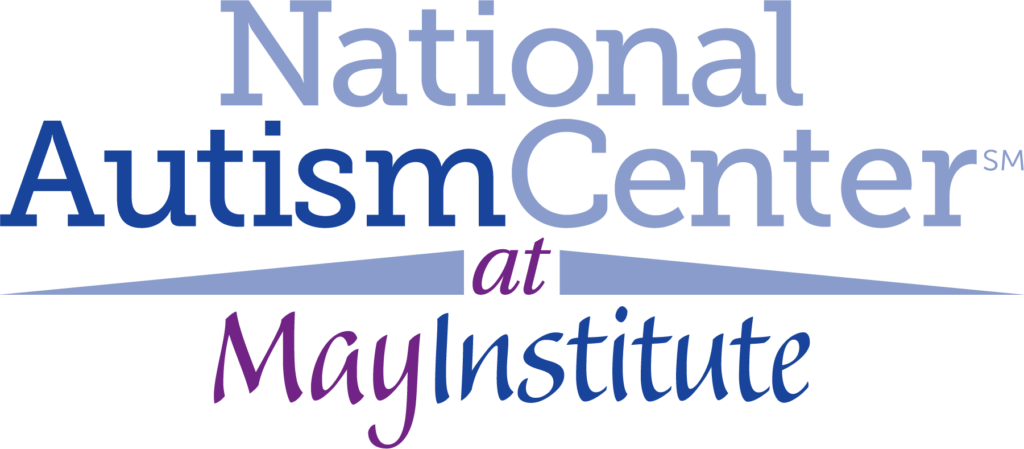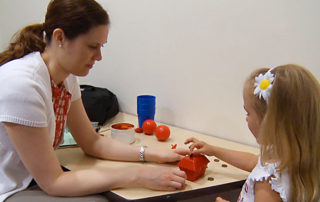epollack
Dr. Robert Putnam Named President-Elect of the Massachusetts Association of Applied Behavior Analysis
MEDIA RELEASE Randolph, Mass. — Robert F. Putnam, Ph.D., LABA, BCBA-D, Executive Vice President of Positive Behavior Interventions and Supports and Consultation for May Institute, was recently elected President-Elect of the Massachusetts Association of Applied Behavior Analysis (MassABA) at the Association’s annual meeting. Applied behavior analysis (ABA) is a methodology, or framework, that applies scientific interventions to address behavioral needs. MassABA represents more than 700 ABA professionals, provides training and educational opportunities, and informs members about ABA practice developments in the Commonwealth. May Institute, a leading national provider of educational, rehabilitative, and behavioral healthcare services for people with special needs, [...]
The Battle Over a Controversial Method for Autism Communication [The Atlantic]
Media / Randolph, Mass. - "May Institute's National Autism Center, considered to be among the very best resources regarding evidence-based treatment of autism, found in both 2009 and again in 2015 in its National Standards Project that there is 'little or no evidence in the scientific literature.'” Read the Atlantic's full article
A Closer Look at Autism: 30 Days, 30 Topics
MEDIA RELEASE Randolph, Mass.—Anyone can search the Internet for “autism treatment” or “autism cure” and get hundreds of thousands of hits. Faced with a barrage of often-conflicting information, how do you know where to begin? During this Autism Awareness Month, it is important not only to raise awareness, but also to offer scientifically sound information that families and others can use to make life better now for people on the autism spectrum. Knowledge is power. “The numbers – at least one million U.S. children have autism, not to mention the rapidly growing population of adults with autism – are staggering,” [...]
National Autism Center at May Institute Publishes New Edition of Popular Educators’ Manual
American Legion Child Welfare Foundation Funds National Distribution Media Release / Randolph, Mass. – A newly updated version of the National Autism Center’s popular autism manual for educators – Evidence-based Practice and Autism in the Schools, 2nd Edition – is now available free of charge from the Center’s website at nationalautismcenter.org. Since the manual was first published in 2010, tens of thousands of copies have been downloaded or purchased by teachers and front-line interventionists from across the country and throughout the world. Responses to a national survey indicate that the first edition of the manual made a significant impact on [...]
National Autism Center Completes Most Comprehensive Review of Autism Interventions; Identifies Established Interventions for Children, Adolescents, and Adults on the Autism Spectrum
Media Release / Randolph, Mass. – Researchers at the National Autism Center at May Institute today released the results of the largest systematic review to date of interventions for autism spectrum disorder (ASD). Their findings identify 14 “Established Interventions” for children and adolescents that have the most research support, produce beneficial outcomes, and are known to be effective, and one Established Intervention for adults on the autism spectrum. “The National Standards Project is an ongoing effort designed to give educators, families, practitioners, and organizations the information and resources they need to make informed choices about effective interventions that will offer [...]
10 Ways to Support Families of Children with Autism this Holiday Season
MEDIA RELEASE Randolph, Mass. - For many of us, the holiday season is a wonderful time of the year – a time to get together with friends and family, enjoy favorite foods, decorate our homes, and exchange gifts. But it can also be a stressful season when you have too much to do and too little time – especially for families who have a child with an autism spectrum disorder (ASD) or another developmental disability. If you have friends or family members who are raising a child with special needs, there are things you can do to help. Hanna C. [...]
National Autism Center Provides Critical Autism Resource
MEDIA RELEASE: Beneficiary of the U.S. Government’s 2014 Combined Federal Campaign Randolph, Mass. — The National Autism Center is proud to be among the selected beneficiaries of the U.S. Government’s 2014 Combined Federal Campaign (CFC). The CFC is the world’s largest annual workplace charity campaign, raising millions of dollars each year for nonprofit organizations that provide health and human service benefits in countries around the world. […]
Diagnosing Autism Spectrum Disorder (ASD)
By: Marisa Petruccelli Morelos, Psy.D Worries about language delay are often among the first concerns parents raise when they bring their child in for an autism assessment. There can be many reasons for a language delay, such as a language disorder, an intellectual disability, a hearing impairment, or even trauma or neglect. It can also be an early indicator of autism spectrum disorder (ASD). […]
Fort Meade – Pathways Autism Education Series
When: October 21 & 22, 2014 | 9 a.m. - 11:30 a.m. Where: Rascon Training Room | 2481 Llewellyn Avenue | Fort Meade, MD 20775 Pre-Registration Required, Contact: Allison Judd, LCSW-C | Tel: 301-677-8086 | Email: allison.m.judd.civ@mail.mil This FREE two-day seminar is designed for military parents or caregivers of children diagnosed with autism spectrum disorder. Presented by Dr. Hanna C. Rue, Executive Director, National Autism Center, and V.P. of Autism Services, May Institute. DAY 1 ] Assessing and Managing Challenging Behaviors DAY 2 ] Choosing and Using Evidence-based Practices for the Treatment of Children
Autism Intervention in Children – How Late Is Too Late?
MEDIA RELEASE By Hanna Rue, Ph.D., BCBA-D, Executive Director, National Autism Center Randolph, Mass. — The recent report authored by Sally Rogers and Sally Ozonoff, UC Davis professors of psychiatry and behavioral sciences, provides empirical support of what most clinicians already know – “the earlier the better.” […]


